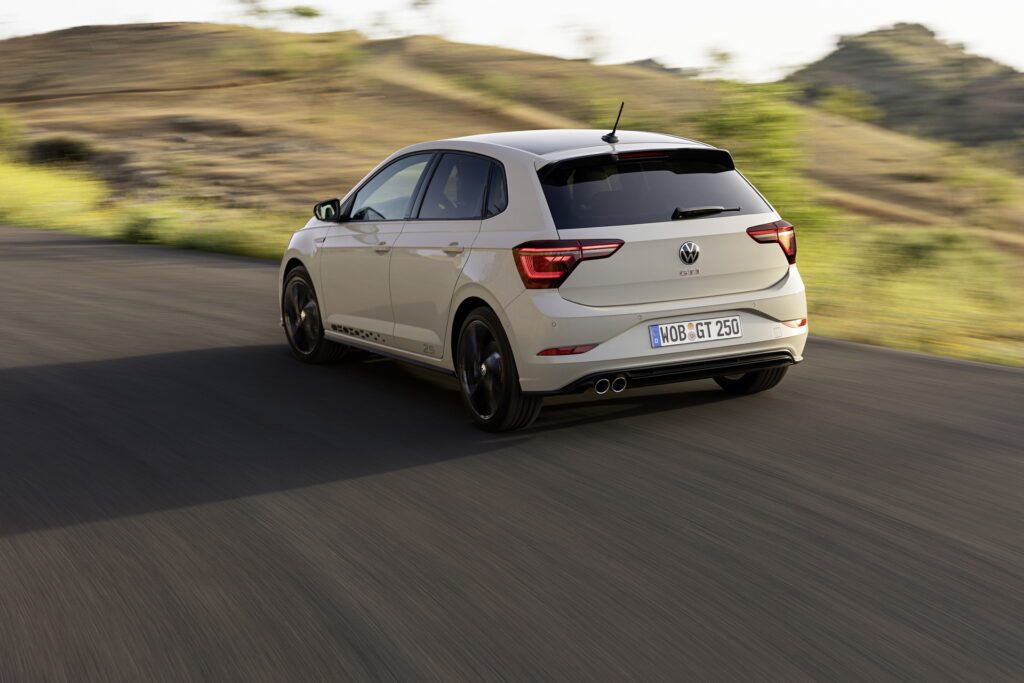- VW has produced 8.4 million Polos in Spain over the past 40 years.
- Production of the Polo will continue in South Africa, leaving Europe behind.
- The Pamplona plant will focus on assembling new electric SUVs starting in 2026.
After 40 long years, VW has ended production of the Polo in Europe. The popular small car had been built at the brand’s plant in Pamplona, Spain, but it will now be manufactured exclusively in Kariega, South Africa. Meanwhile, the Spanish facility will undergo a makeover, shifting its focus to the assembly of two new small electric vehicles.
Sales of the Polo have decreased in recent years, but it still remains an important vehicle for the brand. Just over 90,000 units were sold in the first eight months of the year, enough for it to secure eighth position among the best-selling cars across Europe.
Read: VW Teases €25k ID.2 Electric SUV Coming In 2026
Assembly of the Polo started in Pamplona in 1984 and officially ended in July when a baby blue example rolled out of the facility. A remarkable 8.4 million Polos have been built in Spain over the past 40 years. However, sales of it have been overtaken by the likes of the T-Roc, and it seems VW has decided building it in both Spain and South Africa no longer makes sense.
VW will continue to build the T-Cross and Taigo at the Pamplona site and is making changes to support EVs. From 2026, two all-electric small SUVs will be assembled there, one of which will be sold by VW while the other will be a Skoda-branded model.
Auto News understands the duo will use a shortened, front-wheel drive version of the familiar MEB platform used by a plethora of other VW models. The VW will be badged the ID2all SUV and sit below the ID.3 in its current line-up. A hatchback version of this EV will also be offered and built alongside the related Cupra Raval at the brand’s plant in Martorell, Spain. Meanwhile, Skoda’s small electric SUV will be badged the Epiq and is tipped to start at around €25,000 (~$28,000).




